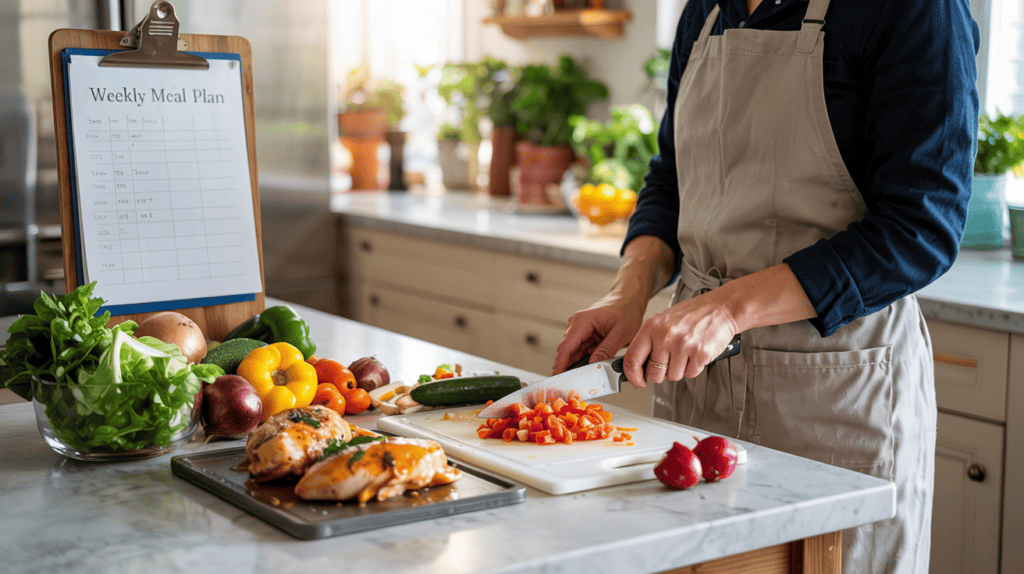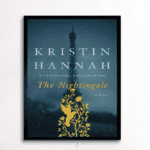Have you ever wondered how your daily diet affects not just your body, but your spirit too? As you cross the golden age of 50, taking care of your body becomes even more important. The Bible verse, “Give us this day our daily bread,” reminds us to be mindful of the food we eat every day.
Nourishing your body with healthy foods can lead to more energy, a stronger immune system, and a healthier heart. Imagine waking up feeling refreshed, eager to start your day, and ready to enjoy the moments that truly matter. It’s not just about staying fit; it’s about living well and embracing each day with joy.
Foods like leafy greens, berries, and nuts can do wonders for your health. Adding supplements like calcium and vitamin D may help, too.
And let’s not forget faith. Food for the soul is as essential as food for the body. Connecting daily with your spiritual self can feed your mind and heart. Why not blend diet and faith as an all-in-one recipe for a better life?
Foundations of Faith and Food
Balancing faith and nutrition can inspire a healthier lifestyle. For those over 50, nurturing both body and soul is key.

Embracing Wholesome Nutrition After 50
As you age, your body needs change.
Eating a variety of colorful fruits and vegetables is a great start. These foods are packed with vitamins and minerals that support your immune system and keep energy levels up.
Whole grains like oats and quinoa offer fiber, important for digestion and heart health. Lean proteins such as chicken, fish, and legumes help maintain muscle mass—not to forget, they’re tasty too!
Nuts and seeds are small but mighty. They provide healthy fats that are great for your brain. Consider supplements like calcium and vitamin D to keep your bones strong. Staying hydrated is equally vital; aim for eight glasses of water a day.
The Spiritual Dimension of Eating
Food can be more than just fuel. It can feed your spirit, too.
Preparing meals can be a meditative act, inviting reflection. As you cook, think of each ingredient as a gift. Give thanks for the hands that cultivated the earth and harvested the food.
Prayer before meals can enhance the experience. It sets a calm mood, aligning mind and spirit.
When sharing meals with loved ones, conversations deepen bonds. This creates a sense of community and gratitude.
Incorporate moments of mindfulness as you eat. Savor each bite, focus on flavors, and appreciate the nourishment it provides. These acts of faith offer peace and fulfillment.
Creating a Balanced Diet
To live a healthier life as we age, it’s crucial to focus on nutrients that support your body.
Eating a variety of foods rich in vitamins and incorporating powerful superfoods can make a big impact. This not only helps the body stay strong but also boosts overall well-being.
Essential Nutrients and Vitamins for Aging Bodies
Your body needs certain nutrients more as you age.
Calcium and vitamin D help keep bones strong, while vitamin B12 supports brain health. Omega-3 fatty acids are great for heart health. You might find these in fish, like salmon, or from flaxseeds and walnuts.
Adding more fiber to your meals is also smart. It supports digestion and may help lower cholesterol levels.
You can find fiber in whole grains, fruits, and vegetables. Consider adding a daily multivitamin if you’re not getting enough from your diet alone. It’s important to talk to a healthcare provider to ensure you’re on the right track.
Incorporating Superfoods and Antioxidants
Superfoods are packed with nutrients and can boost your health in many ways.
Berries, like blueberries and strawberries, are loaded with antioxidants that fight free radicals, helping protect your cells.
Dark leafy greens, such as kale and spinach, are also top picks. They are full of iron, calcium, and vitamins A and C.
Don’t forget about nuts and seeds. They offer healthy fats and can easily be added to salads or yogurt.
Green tea is another fantastic choice. It’s rich in antioxidants and can be a comforting addition to your daily routine.
Supplements and Substitutes
As you embrace a healthier lifestyle, it’s vital to know which supplements and food swaps can make your meals more nutritious.
For older adults, choosing the right options can boost overall health, support your body’s needs, and maybe even sprinkle some joy into your day-to-day routine.

The Role of Supplements For Overall Great Health
Supplements can fill in the gaps that your regular meals might miss. As you age, your body might need a little extra help with certain nutrients.
Calcium and vitamin D are champions in keeping your bones strong. Meanwhile, omega-3 fatty acids found in fish oil support your heart.
Meanwhile, vitamin B12 helps energize you.
When it comes to supplements, it’s crucial to choose wisely and consult with a healthcare provider. They can help determine what your body really needs.
Remember, supplements should never replace food but work alongside your diet. Knowing the right balance keeps you lively and ready for whatever life throws your way.
Adapting Recipes for Healthier Alternatives
Switching some ingredients in your favorite recipes can make a big difference.
Swap out white bread for whole grain options, offering fiber to keep you feeling full.
When baking, you could trade sugar for natural sweeteners like honey or applesauce. Isn’t it great how small changes make meals both delicious and nutritious?
Incorporate more veggies into dishes where you might not expect them. You can add spinach to smoothies or cauliflower to rice dishes.
Making these changes doesn’t have to be complicated. Sometimes it’s the simplest substitutions that offer the most delightful flavors and benefits.
Have fun experimenting in the kitchen, and let your taste buds lead the way to a healthier you!

Cultivating Healthy Eating Habits
Eating well is about more than just choosing the right foods. It requires careful planning, using smaller plates, and developing a keen awareness of what we eat every day.
Meal Planning and Preparation
Have you ever stared blankly at the fridge, unsure what to make for dinner?
Meal planning can make those moments a thing of the past. By setting aside time each week to plan meals, you gain control over what you eat.
Start with a list of your favorite nutritious meals. Include lean proteins, whole grains, and lots of fruits and vegetables.
Try preparing some ingredients in advance, like chopping vegetables or marinating chicken. This helps reduce the time it takes to whip up a meal, making you less likely to reach for takeout.
Also, consider doubling recipes and freezing leftovers. You’ll have ready-to-go meals for busy days. This not only saves time but also keeps you on track for eating healthy.

Mindful Eating and Portion Control
It’s easy to eat quickly and not realize how much we’ve consumed until we’re stuffed. With mindful eating, you’re encouraged to slow things down.
Sit down at the table, avoid distractions, and really taste your food. Notice the flavors and textures with each bite.
Portion control also plays a key role in healthy eating. Start by using smaller plates and bowls. This simple trick can naturally reduce how much you eat without leaving you feeling deprived.
Also, listen to your body’s signals of hunger and fullness. Stop eating when you’re satisfied, not when you’re full.
These practices can not only improve your health but also bring more enjoyment to your meals. Eating should be a joyful experience, not just a routine.








